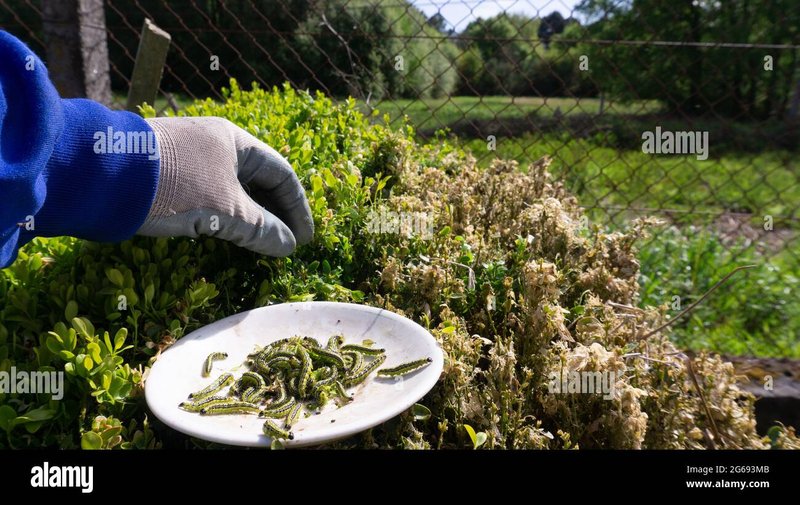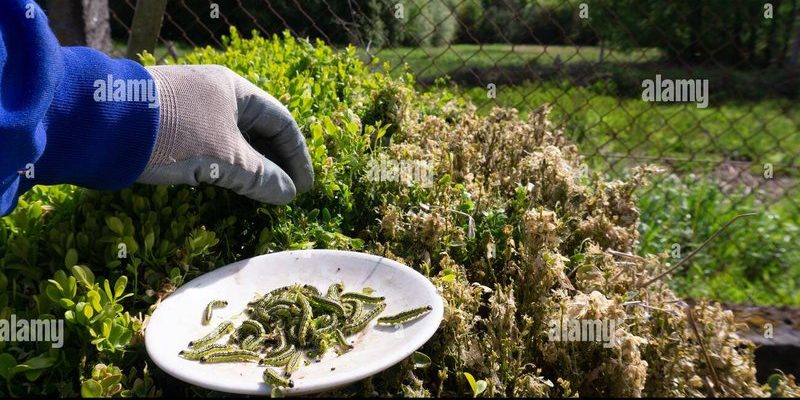
Garden sanitation is your first line of defense against worm infestations. Just like keeping your kitchen clean prevents pests from invading your home, maintaining cleanliness in your garden sets the stage for a thriving ecosystem. You might be wondering what specific steps you can take to safeguard your plants. Let me explain some essential practices that can help you maintain a worm-free garden.
Understanding Worm Infestations
Worm infestations can stem from various sources, but they generally indicate an imbalance in your garden’s ecosystem. These critters, often unwelcome, can munch their way through your plants, leaving them weak and unhealthy. Some common types include cutworms, armyworms, and other garden pests that thrive in damp, undisturbed areas. Understanding how they operate is key to keeping your garden healthy.
Think of worms like uninvited guests at a party who don’t know when to leave. They’re attracted to cozy, neglected spaces with ample food sources, such as dead leaves and discarded plant material. This is where sanitation comes in. By regularly cleaning up your garden, you reduce the chances of attracting these unwelcome guests.
You might wonder how often you should be checking for these pests. Ideally, regular garden maintenance should be part of your routine—just like watering your plants. Checking for signs of infestations will help you catch issues before they escalate.
Cleaning Up Debris
One of the best ways to prevent worm infestations is to regularly clean up debris in your garden. Think of dead leaves, fallen fruit, or any other organic material as a buffet for worms. Cleaning up these remnants not only tidies up your space but also removes food sources that attract pests.
Start by walking through your garden weekly. Look for:
- Old plant material
- Fallen leaves
- Excess mulch
- Weeds
As you gather debris, consider composting what you can. Just be sure your compost pile is managed properly, since a poorly maintained compost pile can attract worms rather than deter them.
When cleaning up, don’t rush. Take your time to closely inspect plants for signs of worm activity. You might catch pests hiding in foliage or at the base of plants. Removing these can save your plants in the long run.
Proper Plant Spacing
In gardening, as in life, giving plants room to breathe is essential. When plants are too close together, it creates a shaded, humid environment that worms absolutely love. Think of it as an overcrowded party. It’s just too cozy, and soon unwanted guests start to show up.
Ensuring proper spacing helps airflow, which is crucial for preventing moisture buildup. Moist environments are breeding grounds for worms. For most plants, check spacing recommendations based on their mature size. It can be tempting to plant everything close together to maximize space, but this can backfire.
If you’ve already planted closely, it might be time to thin out your garden. Pull out a few plants if necessary, and give the remaining ones more breathing room. Trust me, they’ll thank you later.
Crop Rotation Practices
Crop rotation is a gardening technique that not only boosts soil health but also interrupts the life cycles of pests, including worms. By changing the location of your plants each season, you reduce the chances of pests settling in. It’s like moving your furniture around; it keeps everything fresh and new.
Here’s how it works: Different plants have varying nutrient needs, and rotating them helps balance out soil health. For example, legumes can enrich the soil with nitrogen, while heavy feeders like tomatoes may deplete it. When you rotate crops, pests that thrive on specific plants will find themselves without their favorite food source.
Start by creating a simple plan for your garden layout. Keep records of where you plant certain crops each season. This way, you’ll enhance your garden’s resilience against worm infestations and keep things lively.
Natural Pest Deterrents
Sometimes, all it takes to keep worms at bay is a little help from nature. There are plenty of natural pest deterrents that are easy to use and environmentally friendly. Think of these as your garden’s secret weapons against unwanted pests.
One popular option is diatomaceous earth. This powdery substance comes from fossilized algae and acts as a barrier for soft-bodied insects, cutting into them and causing dehydration. Sprinkle it around your plants, and watch it work its magic.
Another excellent deterrent is good old soap. Mixing water with a few drops of dish soap creates a solution that can be sprayed on leaves. This forms a greasy layer that can smother worms. Just be careful not to target beneficial insects in the process!
Additionally, consider planting companion plants that naturally repel pests. For example, marigolds are known for their ability to deter a variety of garden pests. So, why not integrate beauty and utility in one go?
Regular Inspections
Imagine going to a restaurant and finding out the chef never checks the food before serving it. Yikes! That’s how it is with your garden if you skip regular inspections. It’s essential to regularly check your plants for signs of worms and other pests.
Set aside time each week for a thorough inspection. Look for:
- Visible worms or larvae on the foliage
- Chewed leaves or stems
- Sticky residues, which could indicate pest presence
- Webbing, which can signal spider mites
The sooner you catch these issues, the easier they are to manage. If you see a few worms, remove them by hand. If you notice a significant infestation, you might need to consider more extensive pest control measures.
Don’t be discouraged if you spot a few worms; it happens to every gardener. The key is addressing the problem before it spirals out of control.
Maintaining Healthy Soil
Healthy soil is the backbone of a thriving garden, and it plays a significant role in preventing worm infestations. Think of soil as the foundation of a house; if it’s weak, the structure above will suffer. Healthy soil is rich in nutrients and has good drainage, which creates an environment that’s less appealing for pests.
Start by regularly amending your soil with organic matter such as compost or well-rotted manure. This not only adds nutrients but also improves soil structure, promoting better root growth. When your plants are strong, they are much less likely to attract pests.
Mulching can also be beneficial. A good layer of mulch helps retain moisture while suppressing weed growth. It can create a barrier against worms. Just be sure to use a mulch that doesn’t attract pests. Avoid using overly moist mulch, as this can create the opposite effect.
By focusing on soil health, you lay a strong foundation for your garden and reduce the likelihood of worm infestations.
In conclusion, maintaining essential garden sanitation is a vital step in preventing worm infestations. By cleaning up debris, practicing proper plant spacing, rotating crops, using natural deterrents, conducting regular inspections, and ensuring healthy soil, you create an uninviting environment for unwanted guests. Your garden will not only flourish but remain a sanctuary for your plants and beneficial insects. The key is consistency and attentiveness, which ensures your garden remains a peaceful retreat, free from the wriggling disturbances of worms.

